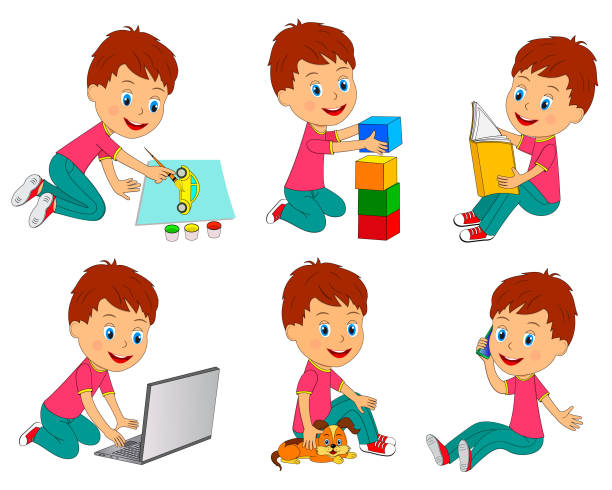St. Andrews World School Guide to Navigating Childhood Swearing
Introduction
At St. Andrews World School, renowned as the best school in Gurguram we understand that young children are natural language explorers. They may test new words, imitate others, or seek attention through language experimentation. While this exploration is normal, it’s essential to guide children towards respectful communication.
Young children often swear because they’re exploring language. They might be testing a new word, perhaps to understand its meaning. Sometimes abuse happens accidentally when children are learning to say words. Children might also be trying to express a feeling of frustration. Or they might simply be saying the word because it sounds funny or gets a reaction or attention. Children might also be imitating others when they use potty language. They might not understand that swear words aren’t acceptable.
St. Andrews World School Guide to Navigating Childhood Swearing
At St. Andrews, we believe in fostering an environment where children can explore language while also learning respect and responsibility. In this guide, we’ll explore why children swear, how parents can respond effectively, and practical strategies to encourage positive language habits.
Don’t give an alarming amount of attention

The first time you hear your child say a cuss word or any offensive word, you may rage with anger and shock. However, bringing too much attention to the event may confuse or scare your child. Instead of understanding what not to do, some kids might hold onto these words to grab attention in the future. So ensure you handle the situation calmly and talk with them politely.
Ask if they know what it means
Most times kids are unaware of what these words even mean and may still be too young to understand the words. Based on their age, ask them if they know what the word means and see if it is appropriate to explain why it is a bad term.
Explain acceptable behavior
your child says a bad or vulgar word to someone else – whether they know the meaning or not – explain to them this behavior is not acceptable. If they say a bad word to channel their anger, teach them to find more appropriate ways to express their feelings. Violence or foul language should be strongly discouraged.
Teach them to children

At a young age, they are not able to articulate all their emotions properly and it is completely ok for them to make mistakes and find their character and personality. However, if you easily dismiss these scenarios because the child did it unintentionally, it may encourage them to not take this lesson seriously. If your kid abused someone else – older or younger – make sure they apologize.
Model good behavior
If you teach your child to not swear but continue doing it yourself around the house – whether on a phone call or behind someone’s back – your kid may pick these words from you. Ensure no one in the family curses in the house. This will reduce the chances of the kid imitating someone cursing in their close space.
To explore Where did your child hear that word
Children often like to try out words they hear or makeup. And these are just as likely to be abusive words as others. Children pick up these words from many sources, outside and inside the home. Not all children learn abusive words from their parents. Exposure to abusive words on the TV, or mobile can lead to an increase in bad language in children. As children get older, their friends and peers will influence their choice of words too. So, parents must keep an eye on their children and what are they doing.
Before you speak ask yourself the formula
Before you speak ask yourself if would you talk this way to a stranger on the street. If you are affording total strangers more respect then hold your tongue. Taking 3 deep breaths before you speak also calms down the situation. To speak bad words to others can be more harmful to yourself so, just think before than speak.
Speak With A Smile
Let’s experiment, It may sound simple but it’s powerful. For one week, aim to say whatever you have to say, with a smile on your face even if it’s a little fake. Sounds simple, right? But I can assure you, this is so powerful, When we speak with a smile on our face we naturally communicate more positively. Not only will we find ourselves being more encouraging to others, but we’ll be less likely to respond from the gut with a curse word or an unpleasantry.
Monitor Screen Time, Music, and Internet Use

This is such a hard reality for so many parents to face, especially at the growing age when their children are starting to make the transition from childhood to the teenage years. The key is to manage it. If you’re not comfortable with the language or values being thrown at your child, it’s time to have a candid conversation with your kids. Monitor their screen time, listen to their music, and keep an eye on their internet usage.
Give Legitimate Power and Control
When cursing is intentional, it’s usually a power play. Our children know it will trigger us to give them attention. When that’s the case, the best thing we can do is find a way to give them legitimate power and age-appropriate control. So how can we do this? Please give them a healthy dose of control over certain areas of their life. That could be picking out clothes, choosing what to have for breakfast, or picking out their favorite book to read before bed. For older kids, you can try giving them a little more control over how they structure their day. Would they rather do homework before dinner or after? A child who has sufficient positive attention and opportunities to exercise power in ways that don’t have to use foul language to turn her head.
Use a swear jar
Many families use a ‘swear jar’. They make their house a ‘no cursing zone’ with this rule applying to all the family members. If any member breaks this rule, he has to put in some money or give up something dear to him. It’s important that this applies to everyone and is used consistently. There can be other such rules applicable to all the family members.
Use positive parenting
Use encouragement, positive phrases, or verbal compliments when you hear your child using appropriate language. It is easier to increase a particular behavior by giving attention to it. When you reinforce good behavior, you are also teaching the child the right behavior for various settings.
Go easy on punishments
It is tempting and often easier to punish the child to get him to stop using bad language. However, these may sometimes have the opposite effect – indicating the ineffectiveness of such punishment. At such moments, pause, and try to understand the child’s behavior based on the various suggestions because It doesn’t teach your child the correct behavior; it teaches him what not to do, rather than what to do.
Concluding St. Andrews World School Guide to Navigating Childhood Swearing
Understanding why young children swear is crucial in addressing the behavior effectively. It often stems from their natural curiosity and experimentation with language, as well as a desire for attention or expression of emotions like frustration. At St. Andrews World School known as the best school in Gurugram, we are committed to promoting a culture of respect and responsibility. By understanding why children swear and implementing effective strategies, parents can guide their children toward positive language habits. Together, we can create a supportive environment where children can thrive academically and socially.



